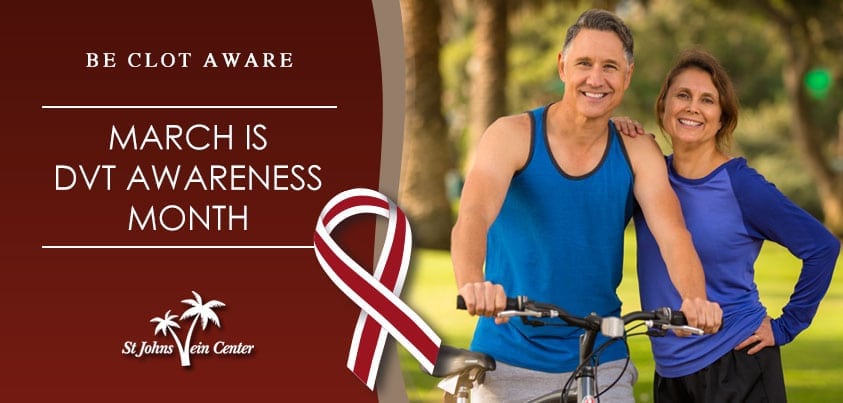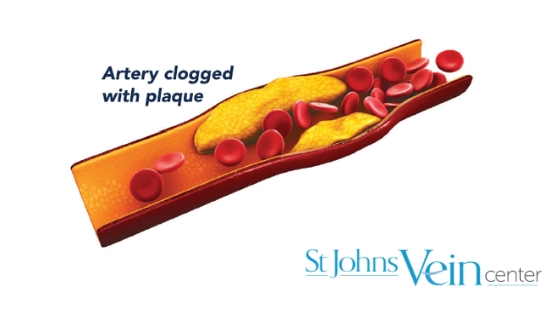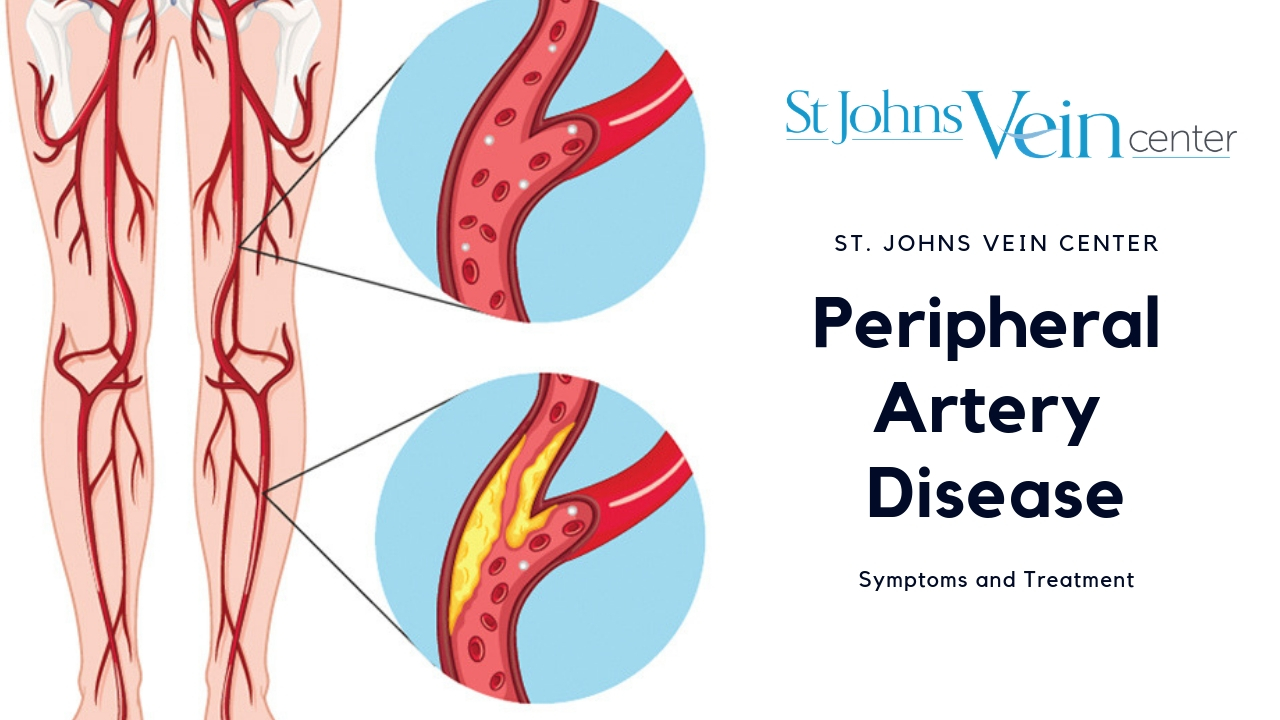Dr. James St George and St Johns Vein Center would like to remind you that March is Deep Vein Thrombosis (DVT) Awareness Month. Many of us have never heard of deep vein thrombosis, but surprisingly, as many as two million Americans are affected by DVT and of these, possibly 300,000 will die.
Deep vein thrombosis, or DVT, is a blood clot that forms in a vein deep in the body, most often in the legs. If gone untreated, DVT can lead to pulmonary embolism, a potentially fatal condition in which a blood clot travels to the lung.
Leading medical, public health and patient advocacy groups are sponsoring the observance and are working to increase awareness of the signs, symptoms and risk factors of DVT. You can help by learning more about the condition, prevention, and symptoms.
DVT Awareness Month: Facts
- Venous thromboembolism VTE (which includes the blood clots deep vein thrombosis DVT and pulmonary embolism PE) affects upwards of 600,000 Americans each year and causes more deaths than the more well-publicized conditions of breast cancer, AIDS, and motor vehicle accidents.
- Both men and women are affected by DVT.
- According to a national survey sponsored by the American Public Health Association, most Americans (74 percent) have little or no awareness of DVT.
- According to the American Heart Association, up to 2 million Americans are affected annually by DVT, more commonly known as blood clots.

Tips for Preventing DVT
- Activity decreases the risk of developing clots. If you must sit for long periods of time, such as working at a computer or long-distance travel, take a break to stretch your legs.
- Maintain a healthy body weight.
- Avoid secondhand smoke and smoking.
- Know your family medical history and make sure your doctor knows about any personal history of blood clots.
- If you are planning for surgery, make sure to ask your doctor what will be done to prevent blood clots. Options are usually a blood-thinning medication (anticoagulant) or compression stockings designed to prevent blood clots.
A registered vascular technician (RVT) can easily detect both venous insufficiency and DVTs by a venous ultrasound. Venous insufficiency symptoms include bulging, unsightly varicose veins, leg pain, heaviness or fatigue that worsens throughout the day. Some experience restless, itchy or swollen legs. In advanced stages it can cause discoloration that can lead to ulcers in the lower leg. If you suffer from any of these symptoms you should schedule a venous screening today.
Take a moment to contact the St. Johns Vein Center via email or call us at 877-640-VEIN (8346) and schedule a complimentary vein screening.




